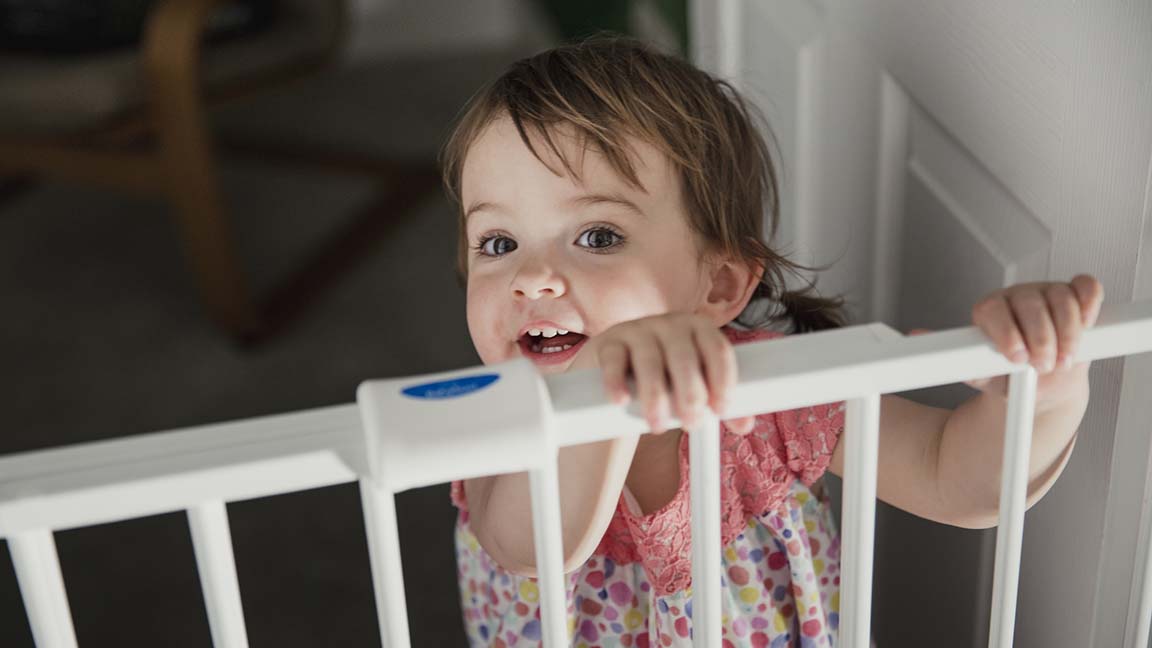As an adult, your home may seem quite safe, but it can be a risky place for children who don’t yet comprehend danger and like to explore.
That’s why it’s vital for parents, grandparents and other caregivers to properly childproof their homes, says Dr. Lucretia Carter, a pediatrician at Tidelands Health Pediatrics in Myrtle Beach.
“Homes can be full of hidden dangers,” says Dr. Carter, medical director of pediatrics for the health system. “It’s important to take steps to mitigate these risks starting before baby is mobile and ready to explore the environment – usually around six months old – and to keep many of them in place until adolescence or beyond.”
At daycare or school, children are vigorously monitored by teaching professionals focused on their health and welfare. At home, there can be more distractions and, thus, opportunities for children to get into trouble.
“Most parents do a very good job staying vigilant, but accidents can happen very quickly. Turning your back to stir a pot on the stove or stepping into another room can give kids an opportunity for injury,” Dr. Carter says.
Childproofing your home requires forethought and possibly the purchase of some items. Many general merchandise stores carry child-safety products such as cabinet latches, outlet covers, doorknob covers and baby gates. For specialty items, you may need to visit a baby supply or hardware store.
Here are some steps to take when childproofing your home:
- Place outlet covers in electrical sockets to reduce the risk of electrocution.
- Install cabinet and drawer latches where chemicals, medicines and sharp implements such as knives and scissors are kept. However, don’t rely on deterrents to work. Some kids quickly decipher locks and latches. If possible, move household cleaners, laundry detergent and medicines to locked cabinets out of a child’s reach.
- Lock up lawn chemicals and insect sprays kept in a garage, basement or outbuilding.
- Keep matches and lighters secured away from children. Don’t assume the child-safety mechanisms on lighters will prevent children from using them.
- Install gates or fences around pools and water features, such as koi ponds or fountains.
- Never leave a container of water, such as a filled bathtub or pail of water, unattended. Keep toilet seats closed and secured.
- Use the rear stovetop burners so children can’t reach pots full of hot food or boiling water.
- Secure exterior exits to your home with childproof locks; use tension bars for sliding doors.
- Consider installing door alarms to alert you if a child goes outside without an adult.
- Avoid cords on blinds. Tie up cords or use retractable cords to reduce the risk of strangulation.
- Use anchors to secure tall furniture to a wall to prevent a child from pulling it over.
- Lock chests and cabinets where a child might hide.
- Don’t keep plastic bags or small objects like buttons, coins, beads or toys within a child’s reach.
- Place hardware-mounted safety gates at the tops and bottoms of staircases. Don’t use pressure-mounted gates on stairs.
- Lock windows to keep kids from falling out.
- Consider window wedges that allow windows to be opened only to a certain height or width.
- Keep alcohol and medications, including over-the-counter medicines, vitamins and nutritional supplements, in a secure – preferably locked – area.
- Keep firearms and ammunition in a locked gun safe.
In case of a serious injury to your child that requires immediate medical attention, dial 911. If your child has ingested medicine inappropriately but is experiencing no or mild symptoms, call the Poison Control Center at 800-222-1222 for guidance on how to proceed.
